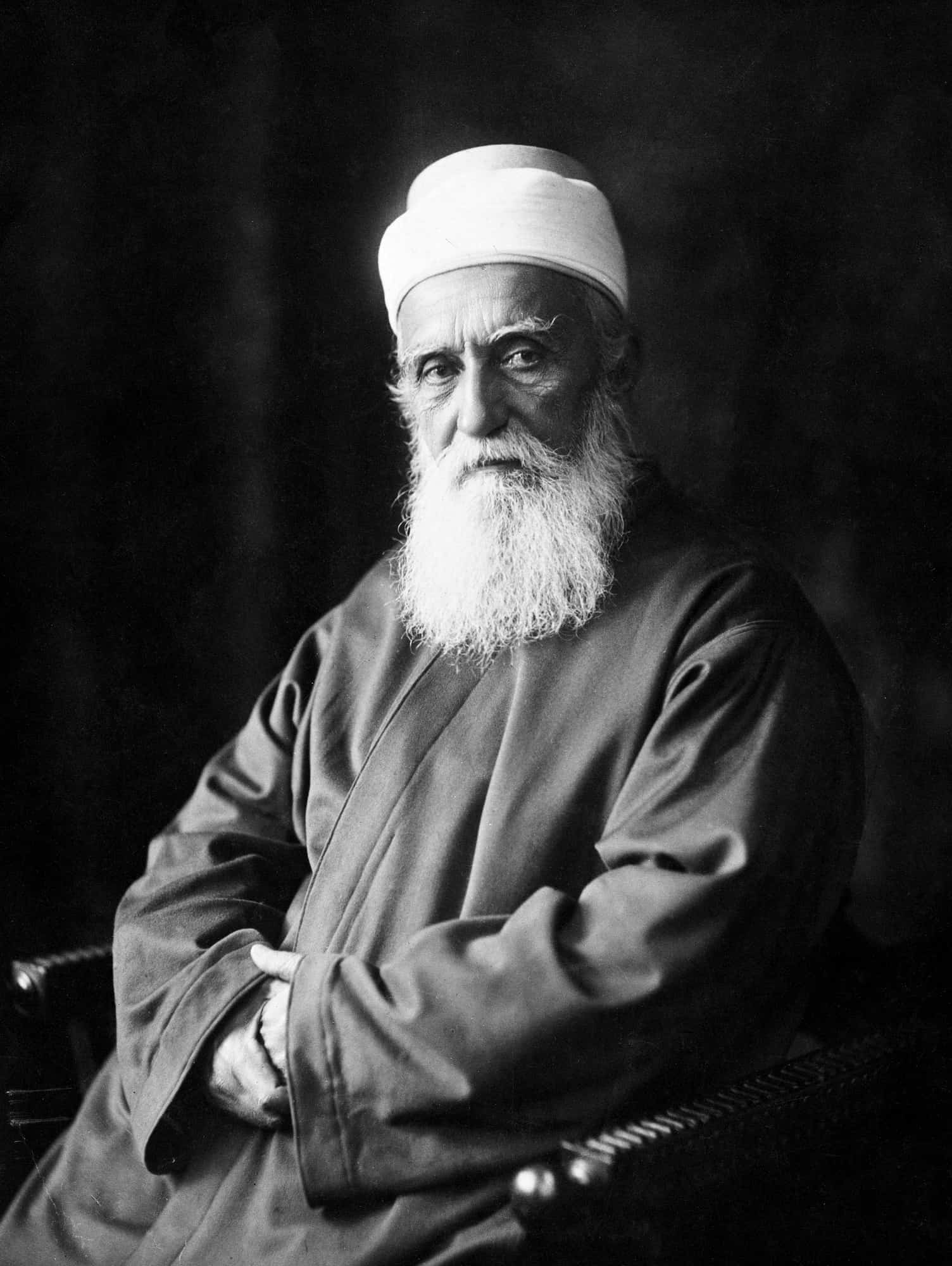
Abdu’l Bahá
ʻAbdu’l-Bahá (; Persian: عبد البهاء, 23 May 1844 – 28 November 1921), born ʻAbbás (Persian: عباس), was the eldest son of Baháʼu’lláh and served as head of the Baháʼí Faith from 1892 until 1921. ʻAbdu’l-Bahá was later canonized as the last of three “central figures” of the religion, along with Baháʼu’lláh and the Báb, and his writings and authenticated talks are regarded as a source of Baháʼí sacred literature.He was born in Tehran to an aristocratic family. At the age of eight his father was imprisoned during a government crackdown on the Bábí Faith and the family’s possessions were looted, leaving them in virtual poverty. His father was exiled from their native Iran, and the family went to live in Baghdad, where they stayed for nine years. They were later called by the Ottoman state to Istanbul before going into another period of confinement in Edirne and finally the prison-city of ʻAkká (Acre). ʻAbdu’l-Bahá remained a political prisoner there until the Young Turk Revolution freed him in 1908 at the age of 64. He then made several journeys to the West to spread the Baháʼí message beyond its middle-eastern roots, but the onset of World War I left him largely confined to Haifa from 1914 to 1918. The war replaced the openly hostile Ottoman authorities with the British Mandate, who knighted him for his help in averting famine following the war.
In 1892 ʻAbdu’l-Bahá was appointed in his father’s will to be his successor and head of the Baháʼí Faith. He faced opposition from virtually all his family members, but held the loyalty of the great majority of Baháʼís around the world. His Tablets of the Divine Plan helped galvanize Baháʼís in North America into spreading the Baháʼí teachings to new territories, and his Will and Testament laid the foundation for the current Baháʼí administrative order. Many of his writings, prayers and letters are extant, and his discourses with the Western Baháʼís emphasize the growth of the faith by the late 1890s.
ʻAbdu’l-Bahá’s given name was ʻAbbás. Depending on context, he would have gone by either Mírzá ʻAbbás (Persian) or ʻAbbás Effendi (Turkish), both of which are equivalent to the English Sir ʻAbbás. He preferred the title of ʻAbdu’l-Bahá (“servant of Bahá”, a reference to his father). He is commonly referred to in Baháʼí texts as “The Master”.
Lists containing Abdu’l Bahá :
383 Influential People who changed the world

The world is filled with thousands of great people who have changed the world. It is not possible to list the most influential men and women in human history, but this list is an attempt to explore some of the most influential people of all time that one must know about. It can be hard…
